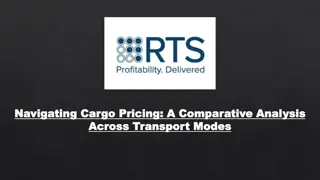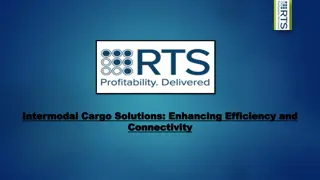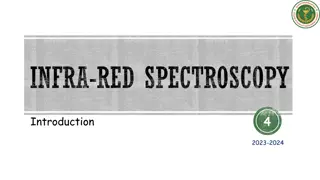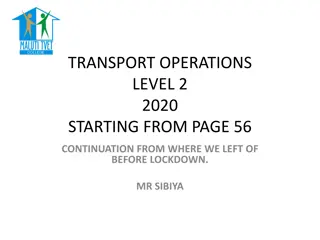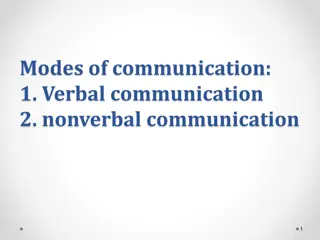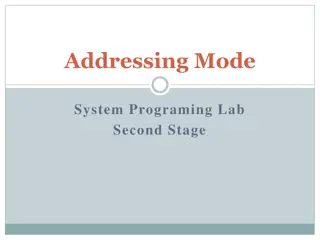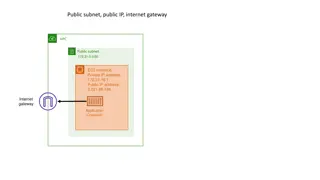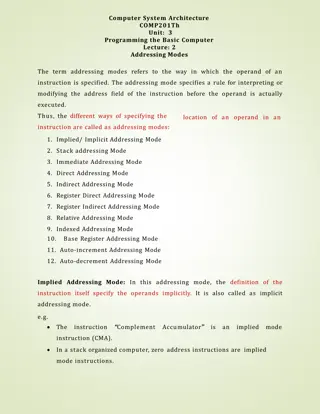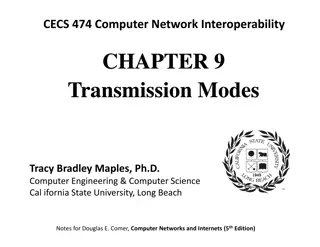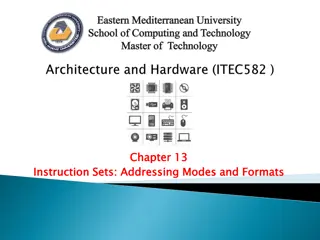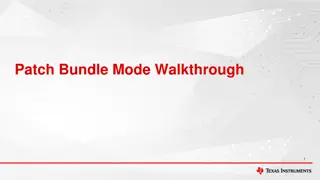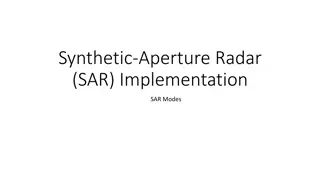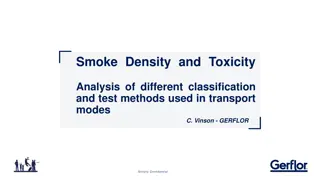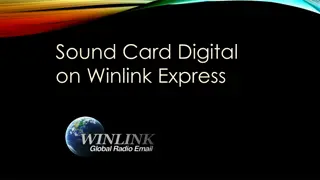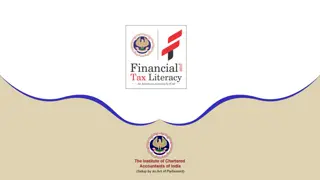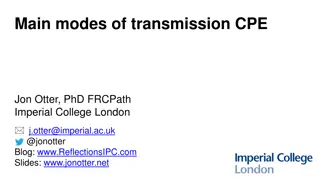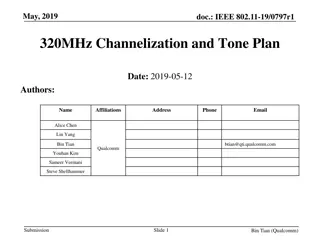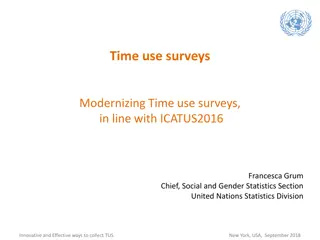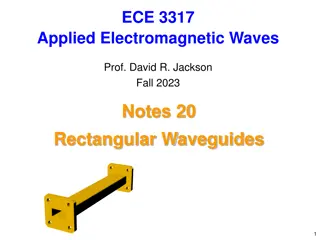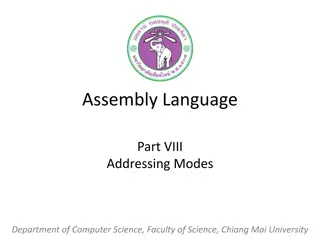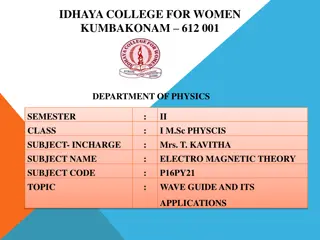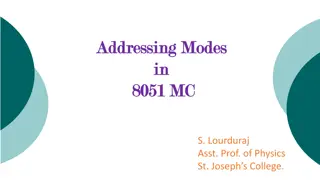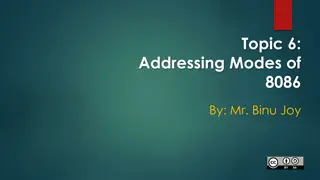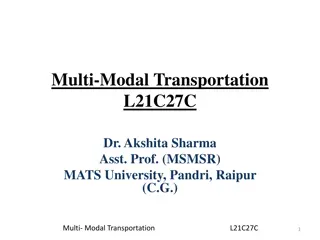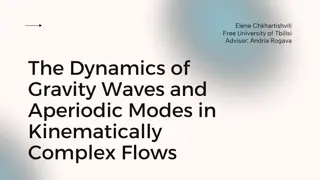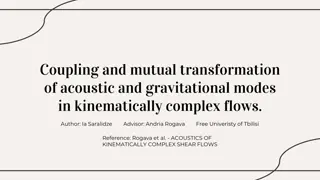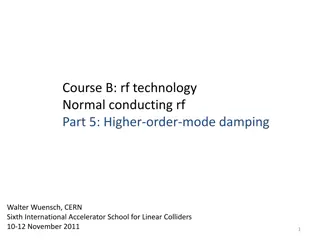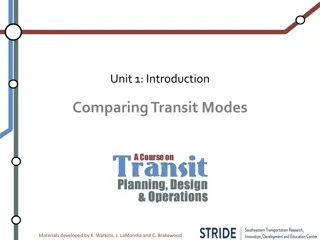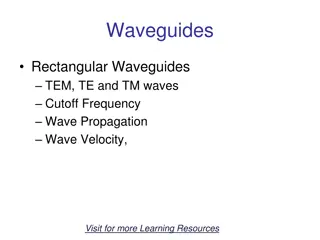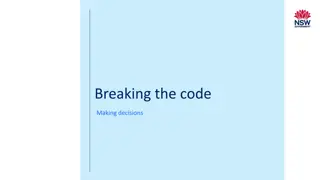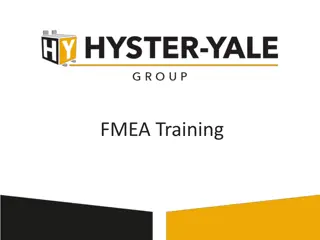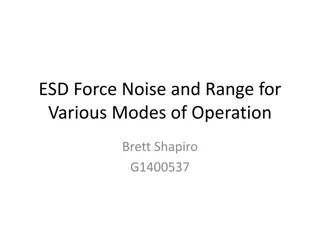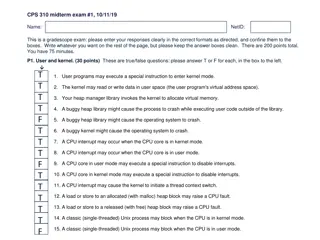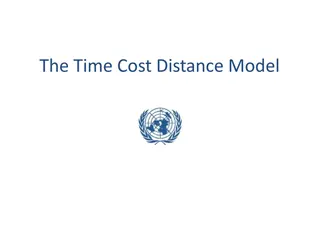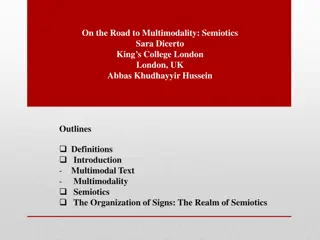Explore Diverse Courses and Study Modes for Your Future Education
Discover a range of courses at different SCQF levels, from Childcare to Cyber Security, offered by the school. Explore study modes like online, face-to-face at UHI Perth, or blended options. Consider factors like travel time, university entry requirements, and speaking with guidance teachers for gui
0 views • 20 slides
A Comparative Analysis Across Transport Modes
In the dynamic landscape of global trade and logistics, the efficient movement of goods is paramount. Central to this process is cargo pricing, a critical determinant that significantly impacts supply chain decisions and costs. As businesses strive to optimize their logistics operations, understandi
4 views • 5 slides
Cargo Pricing Strategies Across Transportation Modes (1)
In the realm of logistics and transportation, pricing strategies play a pivotal role in shaping revenue streams and fostering competitiveness. The dynamics of cargo pricing are particularly nuanced, influenced by factors ranging from infrastructure costs to market demand and operational efficiencies
3 views • 6 slides
Intermodal Cargo Solutions
In the evolving landscape of global trade, the demand for efficient, reliable, and cost-effective cargo solutions is paramount. Intermodal cargo solutions, which involve the transportation of goods using multiple modes of transport\u2014such as trucks, trains, and ships\u2014without handling the car
1 views • 7 slides
Understanding Molecular Vibrations and Infrared Spectroscopy in Chemistry
Molecular vibrations play a crucial role in the study of chemical compounds through infrared spectroscopy, where different modes such as stretching and bending of bonds are analyzed based on their energy levels. Infrared absorption leads to changes in dipole moments, affecting the reactivity of mole
1 views • 23 slides
Understanding Transport Operations: Modes, Categories, and Efficiency
Explore typical transport operations across various modes, including land, water, and air transportation. Learn about the advantages and disadvantages of different modes, such as road, railway, and air transport. Delve into scheduling long-distance trips and the impact of guidelines on transport eff
1 views • 9 slides
Understanding Modes of Communication and Verbal Messages
Communication occurs through verbal and nonverbal modes, with messages having denotative and connotative meanings. Verbal messages vary in directness, affecting the effectiveness of communication. Indirect messages offer advantages such as politeness and avoiding offense, but can also lead to misund
0 views • 64 slides
Understanding Data Addressing Modes in System Programming
Introduction to fundamental data types in Intel architecture including bytes, words, double words, and quad words. Explanation of specifying an offset in memory with examples of instruction descriptions. Overview of data addressing modes such as register addressing and immediate addressing in system
1 views • 15 slides
Networking Modes in AWS VPC Environments
Explore different networking modes such as Bridge mode with static mapping, Bridge mode with dynamic mapping, and AWS VPC networking mode in an AWS VPC environment with various configurations and scenarios.
0 views • 18 slides
Understanding Addressing Modes in Computer System Architecture
Addressing modes determine how the operand in an instruction is specified, impacting the interpretation and execution. Implied, stack, immediate, direct, indirect, register direct, register indirect, relative, indexed, base register, auto-increment, and auto-decrement are various addressing modes ex
0 views • 4 slides
Understanding Transmission Modes in Computer Networks
Transmission modes in computer networks can be divided into serial and parallel modes. Parallel transmission allows multiple bits to be sent simultaneously over separate media, while serial transmission sends one bit at a time. The choice between serial and parallel transmission depends on factors s
0 views • 13 slides
Addressing Modes and Formats in Instruction Sets
This material discusses addressing modes and formats in instruction sets, covering types of addressing modes, design trade-offs, and the distinction between machine language and assembly language. It explores the need for various addressing techniques to reference locations in memory and presents co
1 views • 58 slides
Patch Bundle Mode Walkthrough for Device Configuration
Explore the Patch Bundle Mode walkthrough consisting of flowcharts and pseudo code examples for controlling a device's patch mode, downloading configurations, and changing device modes. The content provides a detailed guide on using commands to initiate patch burst mode, specify I2C addresses, and t
0 views • 4 slides
Understanding Synthetic Aperture Radar (SAR) Modes and Implementations
Explore the world of Synthetic Aperture Radar (SAR) through various modes and implementations, covering topics such as SAR coordinate systems, pulse compression, range-Doppler algorithms, Born approximation, SAR scene simulation, and more. Dive into the distinctions between unfocused SAR and focused
0 views • 18 slides
Analysis of Smoke Density and Toxicity in Various Transport Modes
This document presents an in-depth analysis of smoke density and toxicity in different transport modes, including maritime, railway, and aircraft. It covers classification documents, testing methods, hazard levels, and measured parameters for evaluating smoke density and toxicity levels. The synthes
0 views • 6 slides
Understanding Sound Card Digital Operation on Winlink Express
Explore the capabilities of utilizing a sound card interface for digital operations on Winlink Express, offering flexibility and performance for various modes, including Packet, ARDOP, Vara HF, and Vara FM. Learn about the benefits of sound card interfaces, sound card operation, and the modes suppor
0 views • 39 slides
Understanding Digital Payments: Process and Security
Digital payments revolutionize the way transactions are conducted by enabling cashless transfers between payers and payees through various modes like banking cards, mobile wallets, and internet banking. This article delves into the concept of digital payments, different modes available, the pros and
0 views • 19 slides
Understanding the Transmission of Carbapenemase-Producing Enterobacteriaceae (CPE)
This content delves into the main modes of transmission of Carbapenemase-Producing Enterobacteriaceae (CPE) by presenting images and information from various studies. It covers key topics such as rapid spread, CPE in Europe, emergence of CPE in the UK, transmission modes, contaminated hands and surf
0 views • 20 slides
Channelization and Tone Plan Discussion for 320MHz EHT
IEEE 802.11-19/0797r1 discusses the channelization and tone plan design for 320MHz in EHT (11be). The slides cover the benefits of a 320MHz channel, double peak throughput, various BW modes, existing and new configurations, and proposals for tone plans to maximize efficiency. Detailed considerations
0 views • 10 slides
Modernizing Time Use Surveys: Innovative Approaches for Efficient Data Collection
Explore innovative ways to modernize time use surveys for efficient data collection, addressing challenges like high respondent burden and low response rates. The article covers cost-effective methods, instrument requirements, data collection modes, and optimizing inputs and outputs. Various survey
0 views • 12 slides
Understanding Rectangular Waveguides: Modes and Solutions
Exploring the characteristics of rectangular waveguides, this study delves into the absence of the TEMz mode, the existence of TMz and TEz modes, and the method of separation of variables for solving electromagnetic field equations. The analysis includes the concept of cutoff frequency in lossless w
2 views • 46 slides
Understanding Addressing Modes in Assembly Language
This content delves into the intricacies of addressing modes in assembly language, covering topics such as one-dimensional arrays, the DUP operator for defining arrays, and various modes like register, immediate, direct, and register-indirect modes. It explains how operands are specified in differen
2 views • 24 slides
Understanding Waveguides in Electromagnetic Theory
The concept of waveguides in electromagnetic theory involves the transmission of electromagnetic waves through hollow metallic tubes, such as rectangular and circular waveguides made from materials like copper and aluminum. These waveguides support different modes of propagation, including TE, TM, a
6 views • 15 slides
Understanding Addressing Modes in 8051 Microcontroller
Addressing modes in the 8051 microcontroller play a crucial role in specifying how data is accessed and operated by instructions. They include register addressing, direct addressing, register indirect addressing, immediate addressing, and indexed addressing modes. Each mode offers unique ways to han
2 views • 20 slides
Understanding Addressing Modes in 8086
Delve into the world of addressing modes in the 8086 processor to comprehend how different types of operands are accessed and utilized during instruction execution. Explore immediate, direct, register, register-indirect, and other addressing modes with detailed examples.
1 views • 17 slides
Intermodal Contrast: A Narrative Device in Film
Exploring the use of intermodal contrast as a narrative device in films, this study delves into the integration of semiotic modes to create meaning. Various examples from films like Gattaca are analyzed to showcase how different modes interact to convey nuanced messages and enhance storytelling. By
0 views • 22 slides
Understanding Multimodal Transportation in Logistics
Multimodal transportation involves using multiple modes of transportation for logistics and freight processes. It utilizes a combination of air, road, rail, water, and package carriers to efficiently move goods. Unlike intermodal shipping, multimodal shipping allows for flexibility in handling cargo
2 views • 119 slides
Overview of Insecticides: Modes of Action, Target Pests, and Types
Insecticides are chemicals used to kill insects, but their effectiveness and safety depend on various factors like target specificity, breakdown over time, and toxicity differences. Different classes of insecticides such as Organochlorines, Organophosphates, Carbamates, Pyrethroids, and Neonicotinoi
0 views • 40 slides
Exploring Gravity Waves and Aperiodic Modes in Kinematically Complex Flows
Delve into the dynamics of gravity waves and aperiodic modes in kinematically complex flows in this detailed study by Elene Chkhartishvili from Free University of Tbilisi. The research covers topics like internal gravity waves, main formalism, linearization of the velocity field, main equations, and
0 views • 16 slides
Coupling and Mutual Transformation of Acoustic and Gravitational Modes in Kinematically Complex Flows
This study explores the coupling and mutual transformation of acoustic and gravitational modes in kinematically complex flows. The research delves into phenomena such as stratified fluid, internal gravity waves, and formalism related to background flow and compressible cases. The presentation plan c
0 views • 20 slides
Managing Higher-order Modes in Normal Conducting RF Technology
The excitation of higher-order transverse modes due to misalignments between the beam and RF structures can lead to beam instability in linear colliders. This instability can be mitigated by selectively damping the transverse modes and/or detuning the dipole mode frequencies. Understanding the diffe
0 views • 34 slides
Understanding Transit Modes: A Comparative Analysis by Watkins, LaMondia, and Brakewood
This study delves into defining transit modes, exploring different families of transit modes, and comparing mode selection in the US. The materials developed by K. Watkins, J. LaMondia, and C. Brakewood provide insights into transit mode characteristics like right-of-way systems, technology types, a
0 views • 43 slides
Understanding Rectangular Waveguides and Cutoff Frequency
Investigate waveguides supporting non-TEM modes like TE and TM, where cutoff frequency is crucial. Rectangular waveguides with TE and TM modes are explored, detailing mode orders and field configurations. The cutoff frequency formula and standard waveguide designations are also discussed, along with
0 views • 7 slides
Understanding Modes in Data Analysis
Explore the concept of modes in data analysis through examples like ice-cream sales and mathematical connections to fashion. Learn about unimodal, bimodal, and multimodal datasets and how to identify modes effectively. Discover the significance of modes in making decisions and solving real-world pro
0 views • 9 slides
Understanding Failure Modes and Effects Analysis (FMEA) Training
Failure Modes and Effects Analysis (FMEA) is a methodology that helps in process improvement by identifying and eliminating concerns early in the development of a process or design. It aims to improve customer satisfaction, manage risks, and prevent defects. Training objectives include understanding
0 views • 25 slides
Locally-Unique Address Assignment Protocols in IEEE 802 Networks
This content discusses the Local MAC Address Protocol for locally-unique assignment of 48-bit and 64-bit addresses in IEEE 802 networks. It specifies protocols, procedures, and management objects for address assignment in a structured manner. The document also covers peer-to-peer claiming, server mo
0 views • 11 slides
Understanding ESD Force, Noise, and Range in Various Modes
This content discusses ESD force, noise, and range in different modes of operation, presenting assumptions, possible operation modes, and details on maximum range mode and noise characteristics. It explores concepts like control voltage offset, force noise calculations, and practical applications fo
0 views • 9 slides
Understanding User and Kernel Modes in Operating Systems
The content provided discusses various aspects of user and kernel modes in operating systems through a set of true/false questions related to user programs, CPU interrupts, heap management, and process behavior in different modes. It touches on the role of the kernel in managing virtual memory, hand
0 views • 10 slides
The Time Cost Distance Model
The Time Cost Distance Model in Transit Corridors aims to illustrate the cost and time aspects of door-to-door movement along available routes and modes within a transit transport corridor while highlighting delays at borders or inspection points. The model proposes a methodology based on cost and t
0 views • 14 slides
Understanding Semiotics and Multimodality in Communication
Exploring the realm of semiotics and multimodality, this study delves into the use of multiple semiotic modes in communication. It discusses the significance of combining different modes like verbal, visual, and aural symbols to convey messages effectively. The concept of multimodal texts and their
0 views • 19 slides

